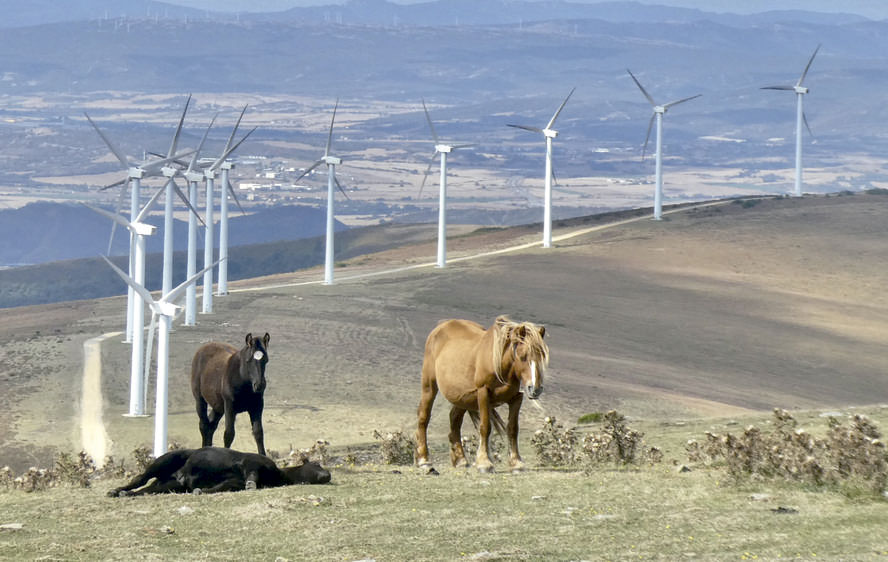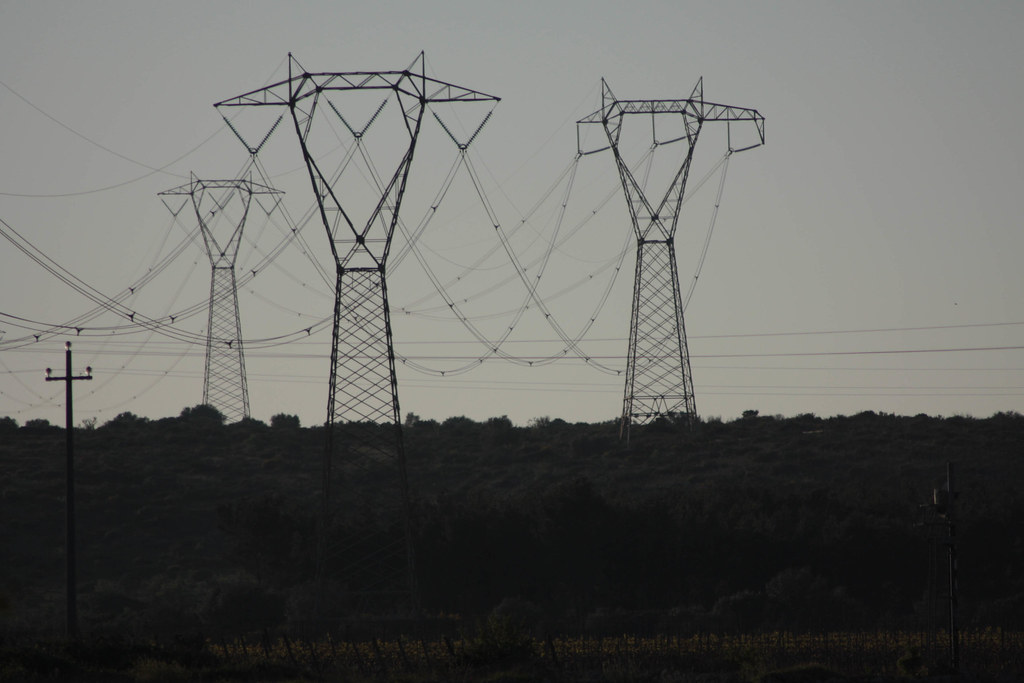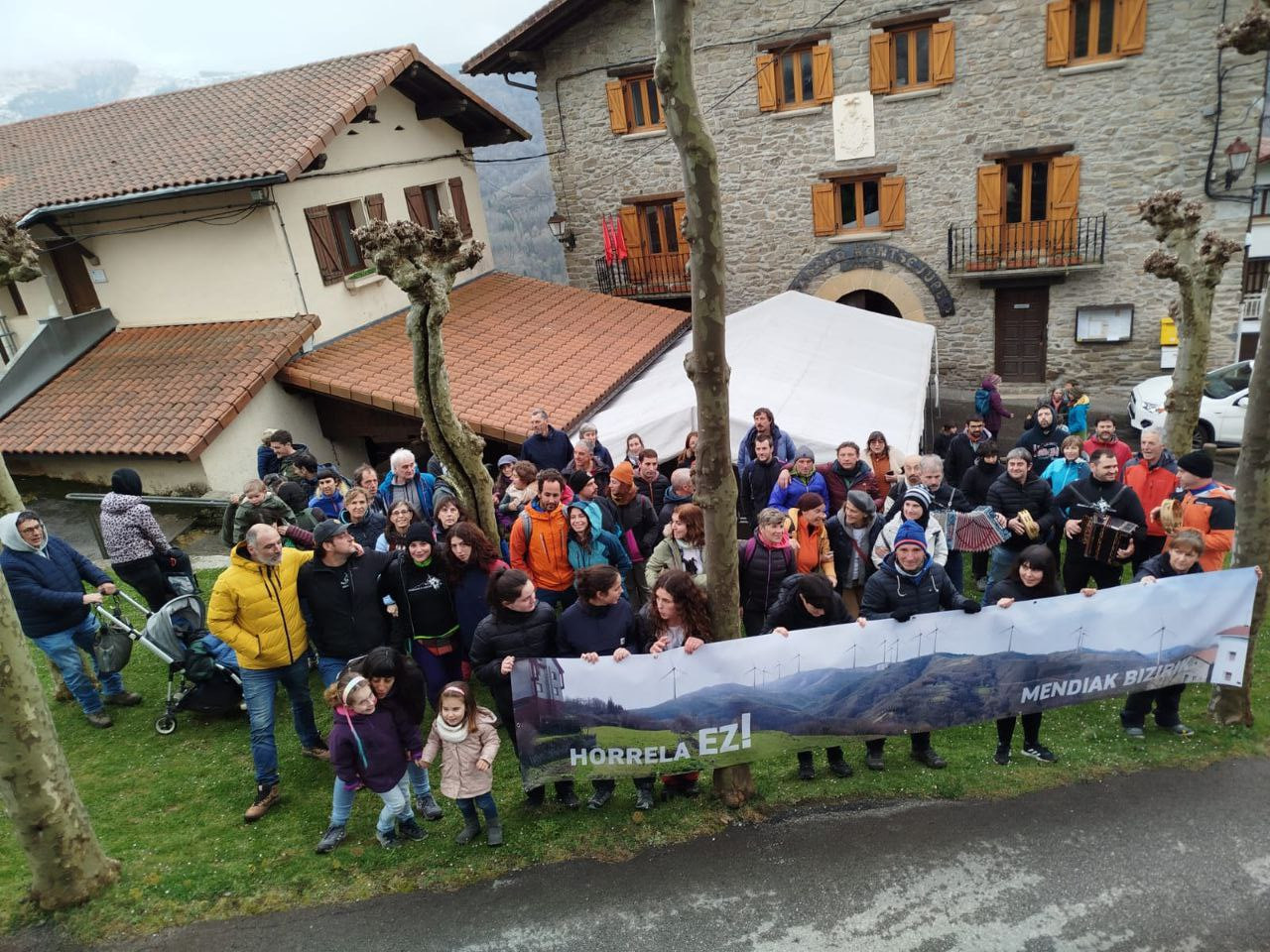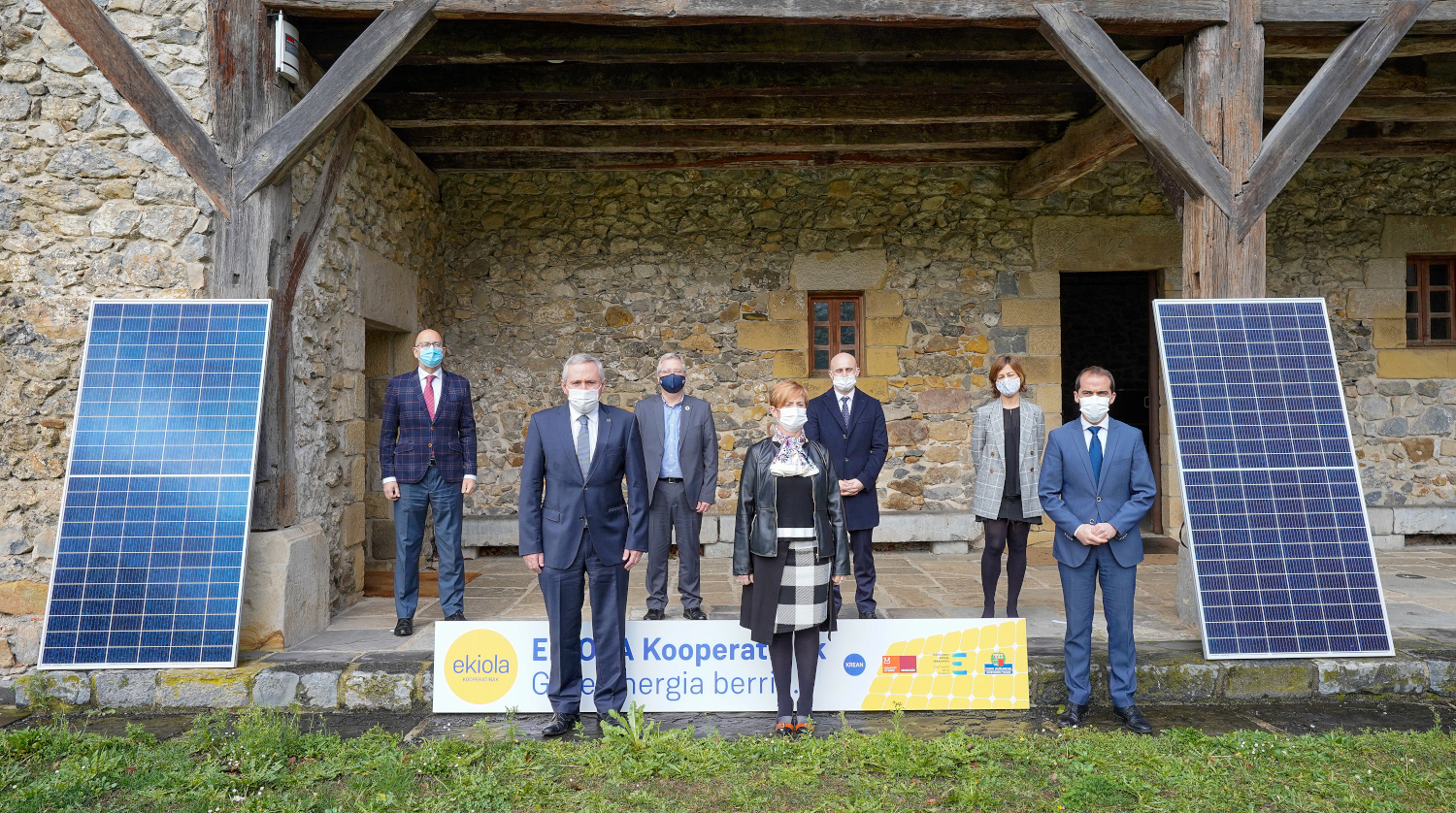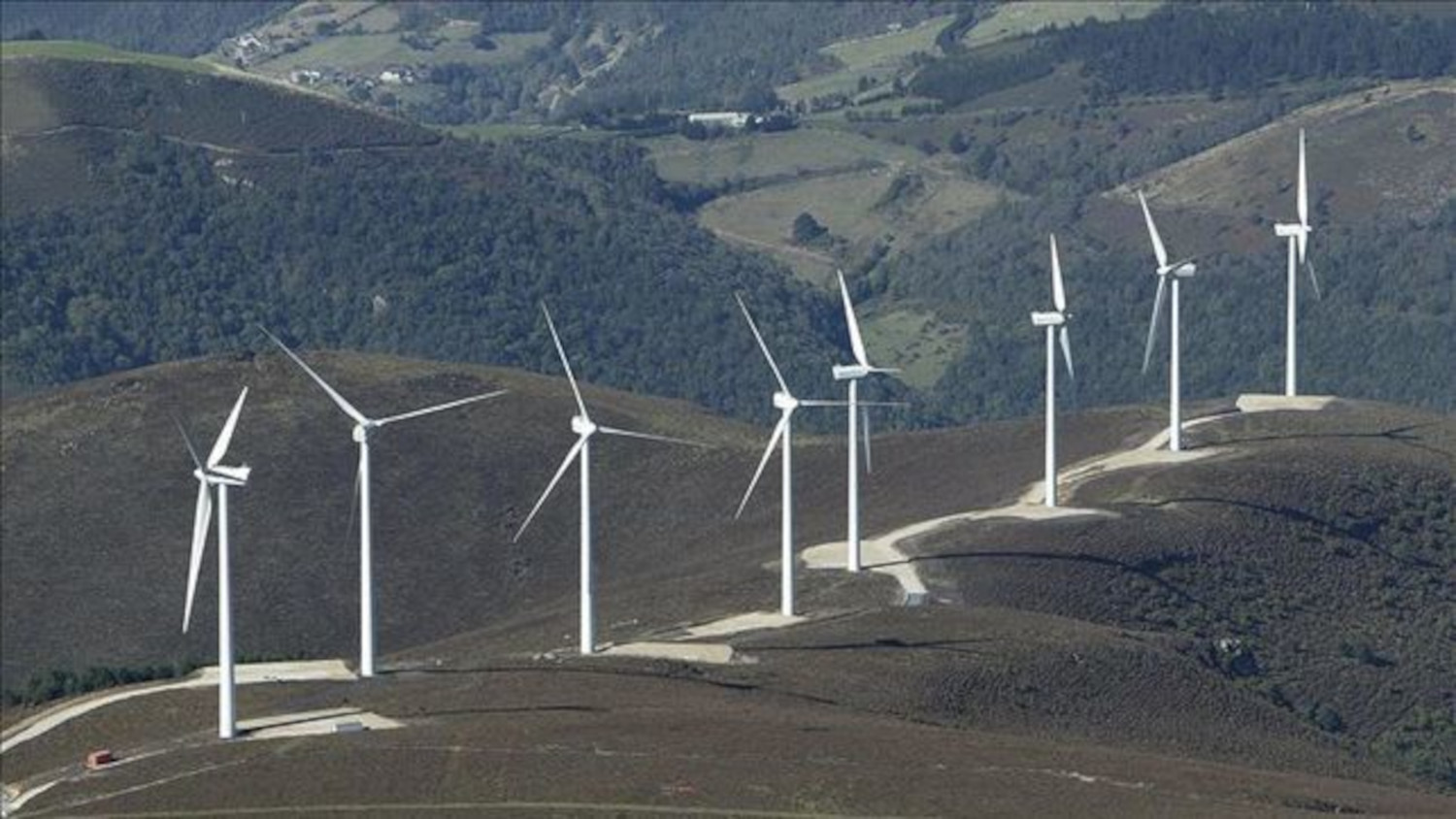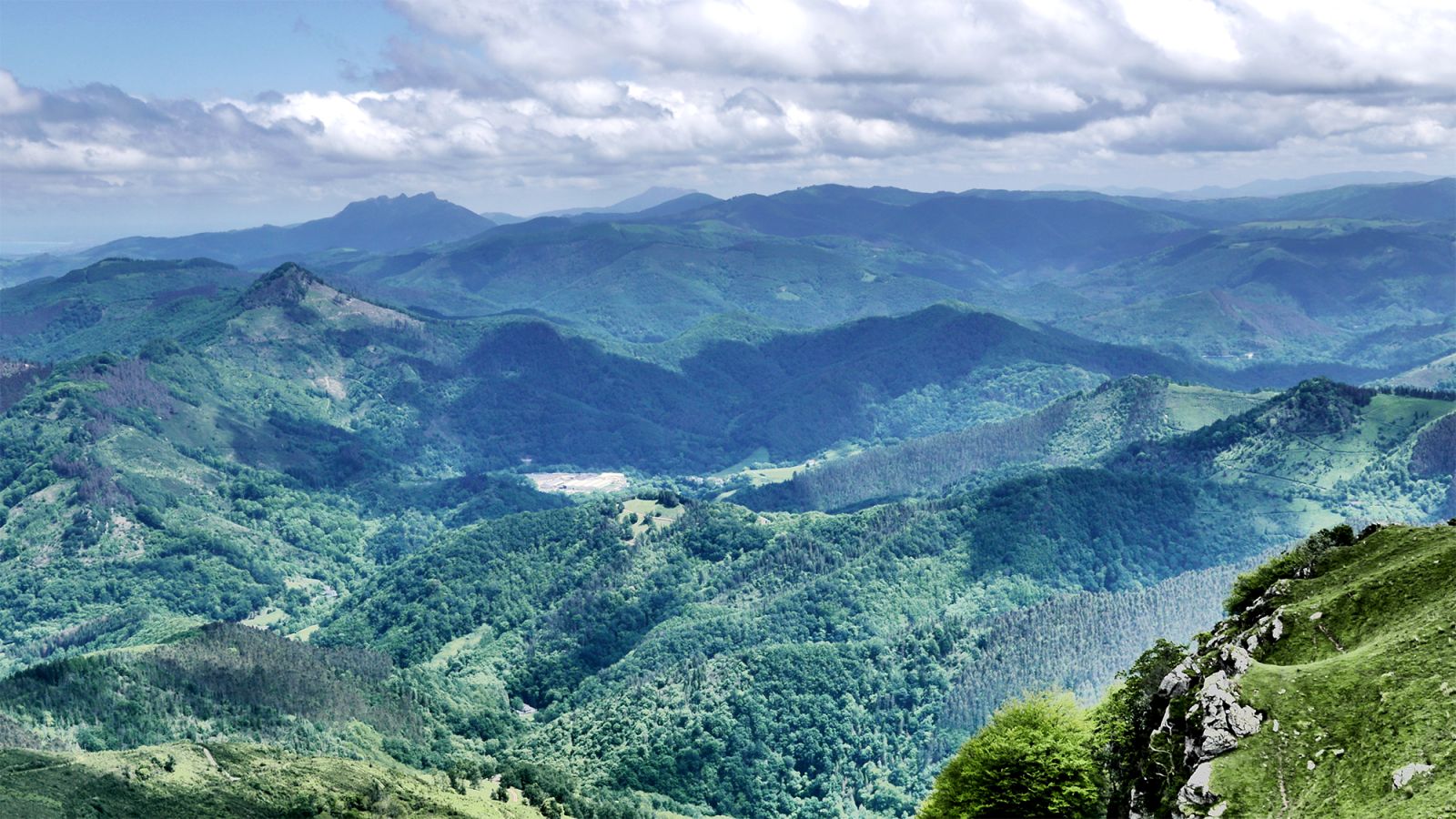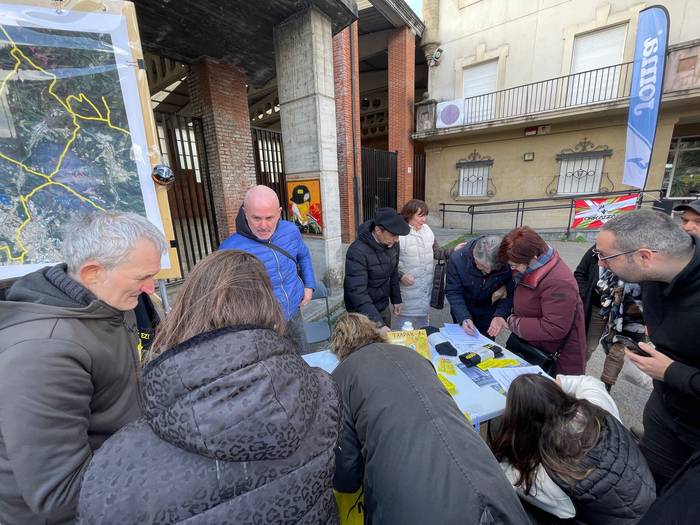A study conducted in Errekaleor concludes that alternative and community life can reduce energy consumption
- A group of researchers from the University of the Basque Country have calculated the energy consumption of the CAPV and the Errekaleor free neighborhood to know the factors that influence the energy footprint.

The energy footprint generated by a person or community depends not only on the energy consumed at home or in transport. On the contrary, the energy used to produce the goods and services we consume is a more important factor than we think, that is, the energy we consume indirectly. To demonstrate this, the research groups Ekopol and Life Cycle Thinking Group of the University of the Basque Country have compared the energy footprint of the free neighborhood Errekaleor and the CAPV in a recently published study (Global Multi-Regional Input-Outmethodology reveals lower energy footprint in an alternative project, 2022).
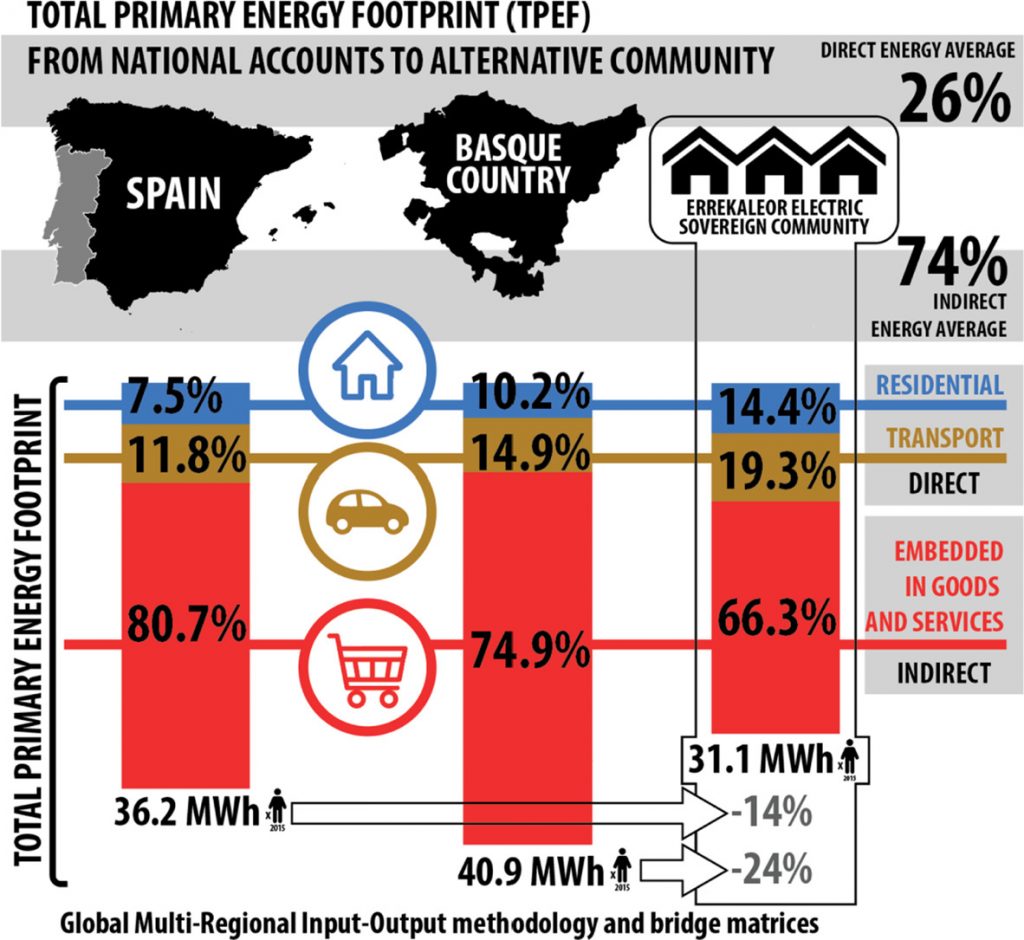
Researchers have concluded that alternative and community-based lifestyles can reduce energy consumption (energy footprint) as they estimate that the per capita energy footprint of the Errekaleor district is 24% lower than that of the CAPV (31.1 MWh and 40.9 MWh per inhabitant per year, respectively).
Energy footprint
The energy footprint (Total Primary Energy Footprint, TPEF) has been the indicator used in the research. This, in addition to the energy consumed directly in households, transport, industry and services, takes into account hidden energy flows. In other words, if we talk about countries, it counts energy imported from other countries as goods and services.
Since goods and services are generally produced in the countries of the Global South and consumed in those of the Global North, if hidden energy flows are not taken into account, the energy consumption in the calculated Global North is lower than its own consumption and, in turn, it appears that the countries of the Global South consume more energy than they actually consume.
Difference between the free district of Errekaleor and the Autonomous Community of the Basque Country
According to the results obtained, the energy footprint of the population of Errekaleor is lower than that of the Basque and Spanish population: 24% and 14% less, respectively. Researchers say that the factor that influences this aspect is the hidden energy flow integrated in products and services: 81% of the total energy footprint of the Spanish state, 75% of the CAPV footprint and 66% of the Errekaleor footprint.
Thus, they have concluded that the consumption of products and services or the energy consumed indirectly is the main factor that conditions the energy footprint, not the direct consumption in housing and transport. In fact, the energy footprint of the population of Errekaleor is lower, despite the higher energy consumption in housing and transport. In this regard, they stress that electricity from Errekaleor's isolated PV system is only 0.6% of the district's total energy footprint.
They also highlight that among the inhabitants of the Errekaleor neighborhood there is a factor that alters the energy footprint: the number of people living in a dwelling. People living in family or group have a 33.5% lower footprint than people living alone.
This kind of research, why?
Estitxu Villamor, head of research, has explained to Elhuyar magazine that research is useful to become aware of the importance of the factors that influence the ecological footprint and to design more effective policies to reduce the footprint.
Indeed, the unlimited consumption model of today’s society has already caused the energy and resource crisis, and the need to reduce the energy consumption of the countries of the Global North has become undeniable. However, the proposed measures aim, in general, at the objective of the energy consumed in the dwellings, without taking into account, as this study shows, the greater impact of factors such as hidden energy flows caused by imported services and products.
Energiaren Nazioarteko Agentziak (IEA) astelehenean argitaratutako txostenaren arabera, %2,2 igo da energia eskaria 2024an aurreko urtearekin alderatuta, besteak beste, egiturazko arrazoi hauengatik: beroari aurre egiteko argindar gehiago erabili beharra, industriaren kontsumoa... [+]
Arratzua-Ubarrundiako "Proiektu honi ez!" plataformak adierazpen hau kaleratu du, udalerri horretako EH Bilduko hiru zinegotziek dimisioa aurkeztu berritan. Izenburu hau darama testuak: "EH Bilduren moketako politika edo Iparra nola galdu".
Arratzua-Ubarrundia (Araba) herriko EH Bilduko hiru zinegotziek dimisioa eman dute Solariaren zentral fotovoltaikoagatik. Hau da hiru zinegotziek, Txetxu Zengotitabengoak, Laura Sanchok eta Javier Ruiz de Arkautek, herritarrei zuzendu dieten agur mezua.
Eusko Jaurlaritzak eta Arabako Foru Aldundiak Datu Zentroen instalazioei ateak irekitzen dizkiete horiek arautzeko legedia sortu aurretik. Bilbao-Arasur Dantu Zentroarekin, bere lehen fasea gauzatuta, eta instalatzea amesten duen Solariaren Datu Zentroarekin, 110.000 m2... [+]
Otero jauna, garai honetan artzain honek ez du tarte handirik izaten ezertarako, justuan ibiltzen naiz, baina gaurkoan ezin utzi erantzun gabe zure azken kolaborazioa. Izan ere, sortu didan egonezinak pisua du. Haserrea ere astuna egiten zait. Ez pentsatu, ordea, dela zenbait... [+]
Martxoak 15 goizean elurrak zuritu zuen Arano. Bertako herritarrek eta ingurutik eta ez hain ingurutik bildutakoek bete zuten plaza eta elkartasunaren beroan gozatu zuten eguna: Urumeako mendietan ezarri nahi duten Euskal Herriko zentral eoliko handienaren kontrako protesta izan... [+]
Susmoa dut komunitatea hustuketa prozesu betean dagoela, eta beldur naiz, beste askori gertatu eran, mamirik gabeko bilgarri ez ote den bilakatuko, jada bilakatu ez bada. Ikustea besterik ez dago, komunitatearen izaera holistikoa gero eta modu lausoagoan heltzen da, eta Che... [+]
Herriko EH Bilduko zinegotzi eta legebiltzarkide den Ander Goikoetxeak egindako galdera parlamentario bati Jaurlaritzak emandako erantzunaren bidez jaso informazioa hau. Bi haize sorgailu ezartzeko asmoa dago eta Cluster Hernani izeneko proiektu zabalago baten barruan kokatzen... [+]
Cefiro Holdco enpresak "Domiko" deitu dion eta bederatzi makroeoliko izango lituzkeen proiektua jarri nahi du Lesaka eta Goizuetako lurretan eta ebakuazio-linea Oiartzungo azpiestaziora bideratuko luke. Espainiako Gobernuak du proiektu hau tramitatzeko eskumena.
Bolo-bolo dabil energia berriztagarrien hedapenaren inguruko eztabaida. Sarri askotan, iritsi den proiektu zaparrada desordenatuak eragindako artegatasunak bultzatuta, albiste zein iritzi-artikulu mordoaz gain, hitzaldiak, eztabaidak, mahai inguruak, bideo emanaldiak eta abar... [+]
Komunitatea bildu, pilpilean dauden gaiez hitz egin, informazioa trukatu eta beste herrien esperientziak ezagutzea da herritar kritikoek egiten duten lehen ekintza, makroeoliko bat herrian jarriko diotela jakiten duenean. Halaxe egingo dute martxoaren 13an Andoainen: mendi... [+]
Laudion, Aiaran eta Okondon izango du eragina energia azpiegiturak eta plataformaren aburuz, proiektuak eta ingurumen-inpaktuaren azterketak gabezia garrantzitsuak dituzte.









